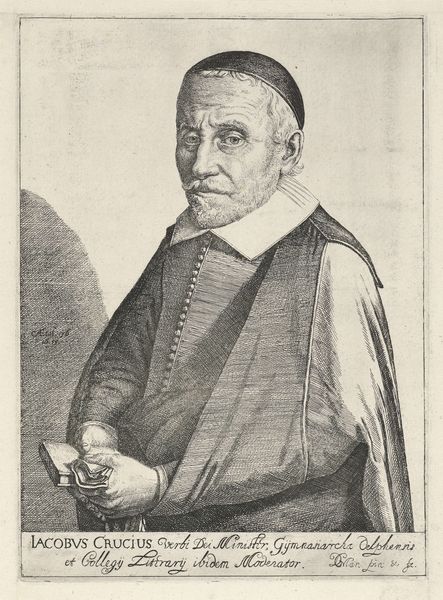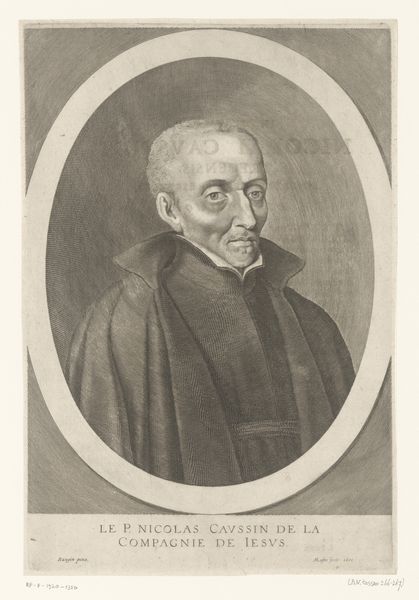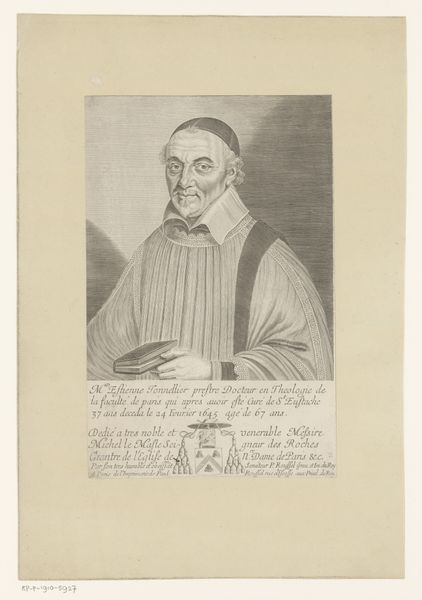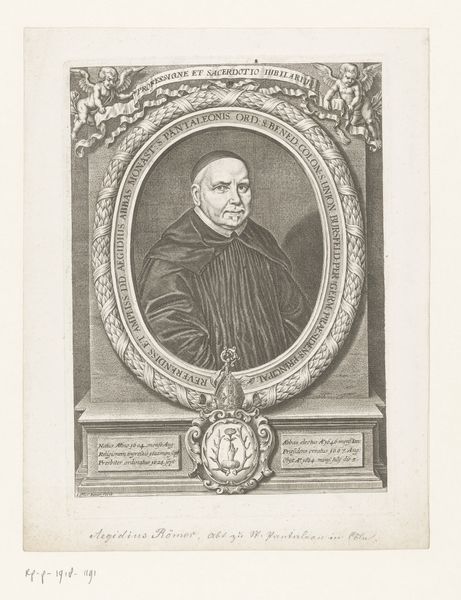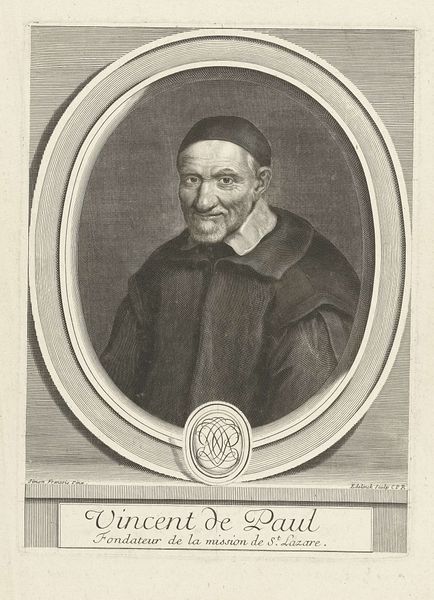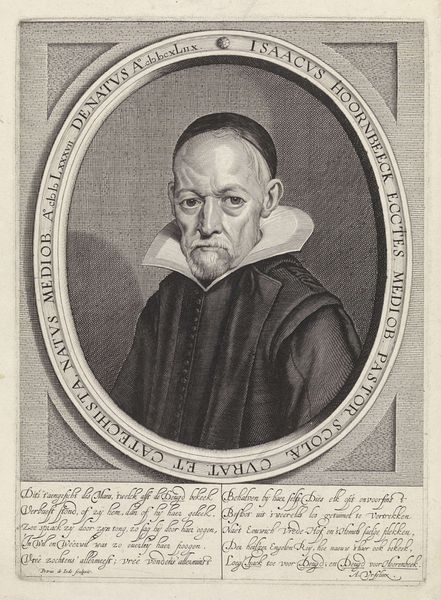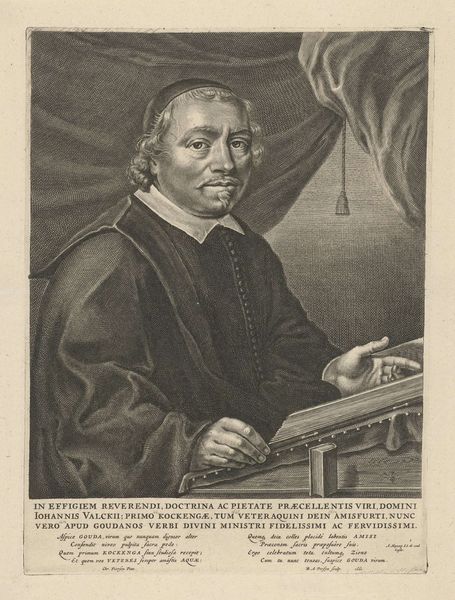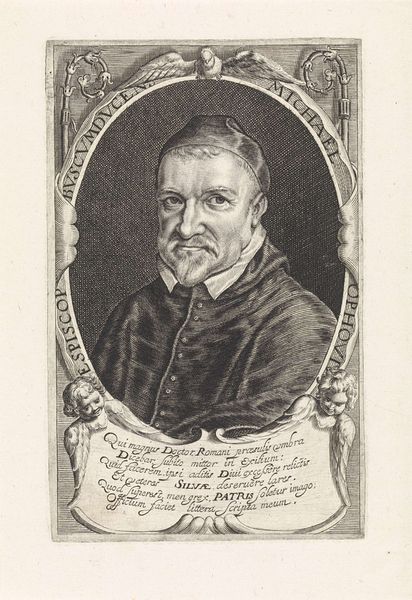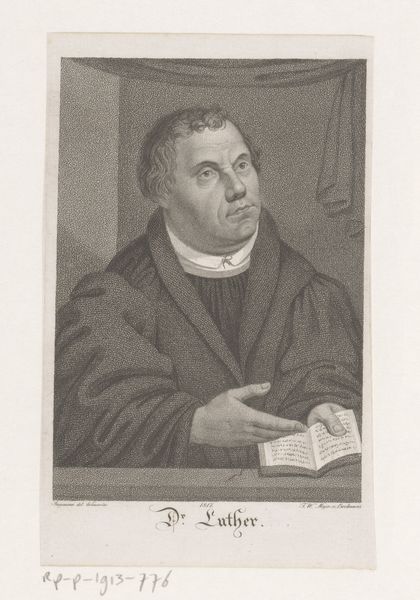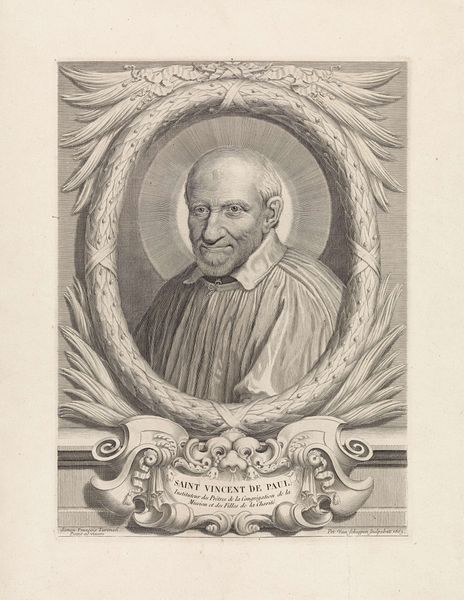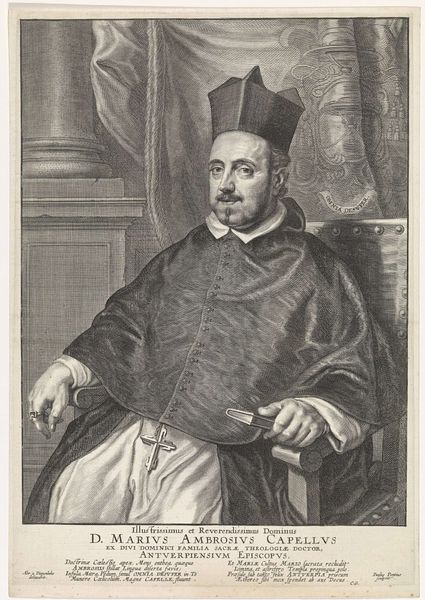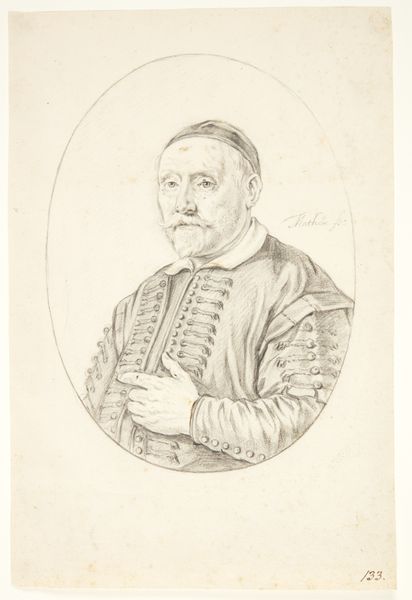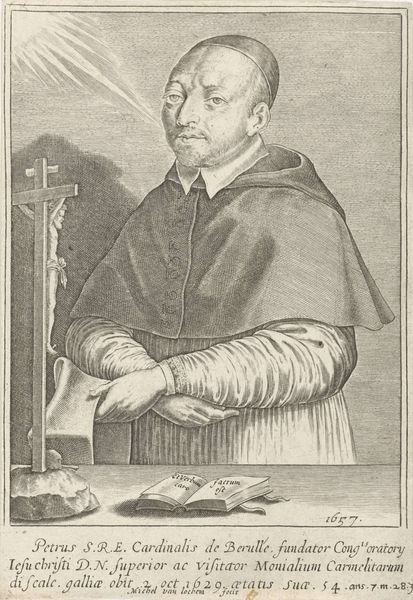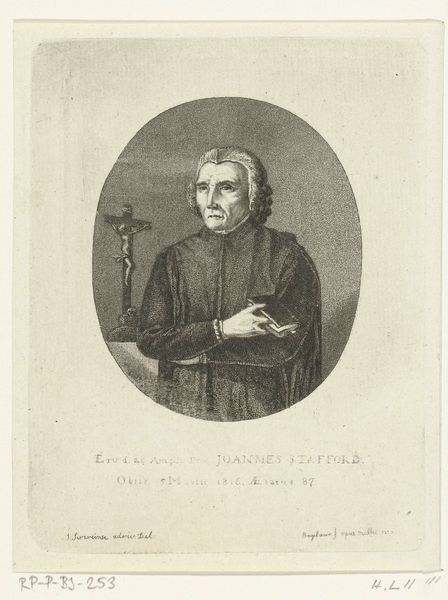
Dimensions: height mm, width mm
Copyright: Rijks Museum: Open Domain
This is Johannes Arnoldus Boland’s portrait of Jacobus Crucius, made with etching, a printmaking technique where lines are incised into a metal plate with acid. Consider the labor involved in the production of this print, the time and skill taken to translate human likeness into series of thin lines. Notice how the varying density of the hatching creates a range of tonal values, suggesting the play of light and shadow on Crucius’ face and clothing. This highly skilled work would have taken time, care, and expertise. The act of creating this portrait speaks volumes about the social status of both the artist and the sitter. Printmaking allowed images to be reproduced and disseminated widely, contributing to the development of a visual culture that democratized representation. By mastering and deploying the medium of print, Boland was part of a broader movement that blurred the lines between artistic expression and commercial production. It challenges traditional hierarchies of art and craft.
Comments
No comments
Be the first to comment and join the conversation on the ultimate creative platform.
